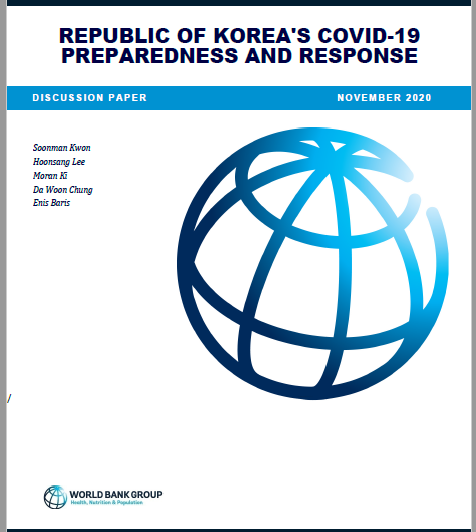World Bank’s discussion paper, Nov 2020 devoted to Republic of Korea’s COVID-19 preparedness and Response. It emphasizes that post-MERS (Middle East respiratory syndrome) legislative and regulatory reforms enhanced the public health preparedness and response system in the Republic of Korea. Investment in strengthening the Korea Centers for Disease Control and Prevention (KCDC) in policy, research and training as well as proper and flexible financing of public health measures proved to be crucial. Massive testing, isolation of cases, and extensive contact tracing as well as public participation in social distancing all enabled Korea to control COVID-19 without a painful lockdown. With close public-private partnership and an available approval process already in place, rapid decision making and swift action for the development of testing kits and guaranteeing their availability in both public and private laboratory facilities may have been the crucial part of Korea’s COVID-19 response.
Universal health coverage, thanks to a National Health Insurance (NHI) system, which provides coverage to the entire population and encompasses all health care providers through a single pool, ensures access to testing and treatment without financial barriers. The high degree of trust in and effective communication by the government contributed to compliance with government policy and adherence to social distancing. Maintaining flexibility and making adjustments was crucial as the epidemic worsened, and data were fed in for analysis and decision making. A new type of treatment facility, living treatment centers, was introduced to care for patients with milder symptoms. Drive-through test centers were introduced to rapidly increase testing and avoid further potential infections.
Korea’s experience shows that sustained investment in preparedness and response pays off handsomely, and is a lesson for all countries, low, middle and high income. Decisive and data-driven leadership, strategic clarity (a focus on testing and contact tracing), and willingness to be innovative are also crucial. Results show that the Korean economy will be one of the least affected in terms of loss of productivity, unemployment, and growth.


